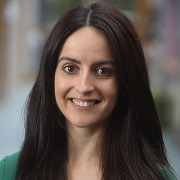
The discourse on decarbonizing academia has predominantly centered on pragmatic solutions: reducing air travel, hosting online or hybrid conferences, and offering plant-based food at events. While these measures are essential and well-received, there is a pressing need to explore the theoretical, intellectual, and imaginative dimensions of decarbonizing academia. What are the intellectual genealogies of these practical measures, and how might they transform the research questions we ask, the methods we employ, and the academic cultures we foster? The Low-Carbon Research Methods Group, with their solar-powered website, provocatively inquire about the “equity and epistemological gains” that can be achieved through a decarbonized academia. [1]
In this context, I organised a hybrid Environmental Humanities symposium at University College Dublin on April 11, 2024, themed “Research Ecologies,” to delve into these questions. The symposium built on a previous event at University of Galway [2], and established a new collaboration between the Horizon Europe MARBFEFES project [3] and the UCD Humanities Institute project Cultural Imaginaries of Just Transition [4]. It was funded by the UCD Humanities Institute, the UCD Earth Institute, and the UCD College of Arts and Humanities. A key aim was to explore the Environmental Humanities' role in researching the values, meanings, and imaginaries of environmental issues, with a specific focus on the ecologies of research itself. The event sought to interrogate the materials, infrastructures, and cultures that underpin academic research and to consider how the decarbonization agenda could reimagine the ecology of research for more communal, just, and equitable aims.
There was a focus on issues of culture, politics, and justice as they underpin research ecologies. A key topic of discussion—fostered by Dr Éireann Lorsung’s paper and Dr Sam Solnick’s keynote—was the way in which precarious employment is a harmful constituent of contemporary research ecologies. Their talks illuminated how precarity furthers unsustainable practices by locking precarious and early career scholars into fast-paced cycles of competition, overworking, and exhaustion; this hampers the ability to make sustainable choices or participate in activism for just transitions. Precarity also takes its toll on the minds and bodies of individual researchers and should be tackled collectively alongside efforts to decarbonize research. As Dr Lorsung and Dr Solnick suggested, artistic, embodied, and collaborative practices can serve to imaginatively resist precarity. Dr Solnick discussed the collective energy, confidence, and creativity generated by his place-based walkshops and his recent collaborations with the community-engaged Liverpool theatre group Collective Encounters. Dr Lorsung’s poetic paper stood as an imaginative bulwark against precarity, exposing the dehumanizing logics of precarity juxtaposed with expressions of “a university of the living” who assert in more-than-human solidarity that “we are here”.
Another key topic was the materiality and politics of digital research. A keynote by Dr Michelle Bastian emphasised the need to offset the social disconnection of online and hybrid events.[5] Drawing on her own experience with conference organisation for the Temporal Belongings Network, Bastian highlighted the role of “administrative activism” [6] in redirecting time, planning, and financial budget into cultivating inclusive and engaging online conferences [7]. Dr Patrick Brodie explored the materiality of the digital (in the context of the application of digital technologies to Irish fish farming) and how it is increasingly positioned as an environmental “fix” despite representing mainly profit-based industries which obscure their rising energy, land, and natural resource costs [8]. He showed how an uncritical embrace of the digital advances rationalities which support economic growth at all costs. Dr Lisa Otty highlighted the work of the Digital Humanities Climate Coalition (DHCC) which advocates for small subversive actions—such as greening your website—alongside larger structural critique [9]. The DHCC deploys critical, process-oriented, and collaborative methods, producing digital toolkits and outputs which aim for practical and theoretical value to a wide range of (academic and non-academic) stakeholders.
The symposium emerged from the discipline of English Literature, so there was a clear foregrounding of the arts and cultural analysis. The arts can engender innovative methods of inquiry which illuminate hidden research ecologies, stimulate critical thinking, and forge new interdisciplinary solidarities. A showing of the film essay Making Dust (dir. Fiona Hallinan with Ellen Rowley, 2023, Arts Council of Ireland, Aemi) demonstrated the power of creative expression to incite pause on seemingly pragmatic processes such as the demolition of a disused but iconic church—the Church of the Annunciation in Finglas West, Dublin. Centring local community voices, images of the massive size of the church and its unique modernist architecture, and the haunting sound of church bells, the film attests to the materiality and social value of a large, elaborate building with high levels of “embodied carbon”. The film triggered thinking about failures to consider the full life cycle of buildings which invited reflection on how public buildings are managed and valued. It also served as an example of an arts-based research output with potential long-term relevance to local communities.
Considering our focus on research ecologies, we reflected on questions of location, accessibility, and travel when it comes to networking on local, national, and global scales. Dr Treasa De Loughry and Dr Sarah Comyn were invited to lead a closing session on “The Ethics of Gathering” based on their work organising Environmental Humanities events at UCD [10]. Dr De Loughry built on discussions of sustainability and decarbonization at UCD, and considered UCD’s energy usage (infrastructure, transport, operations, and such) in light of the concerns raised throughout the day. Dr Comyn reflected on her recent arts-based workshops which have been a way to create new communities and solidarities that re-energize in the wake of climate disaster. Participants provided post-it responses to ideas from the session and the day. One response proposed “The university (and conference events) as a place of refuge for radical anti-imperial acts and conversations”. This response highlights the tiring and risky character of activism and critique and how it needs a stable and supportive space in which to occur—universities can and should provide such a space. It also brings to mind recent pro-Palestinian student encampments in our home campus of UCD and elsewhere in Ireland and abroad, which represent an admirable example of the activist mobilisation of research ecologies. [11]
The symposium contributed to the work of local and national initiatives, such as the UCD Sustainable Research Initiative, Irish Green Labs, and the Science Foundation Ireland Climate Action Strategy. These initiatives are at the forefront of decarbonizing laboratories and advocating for ecologically sustainable research practices and travel. Representatives from these initiatives attended the symposium, fostering dialogue across STEM and AHSS disciplines.
With over 80 participants from different countries and disciplines, the symposium hosted rich discussions. Feedback forms indicated appreciation for the original, self-reflexive approach to environmental research, the high-quality presentations, and the emphasis on fostering social connection for online attendees. Ideas from the day will feed directly into MARBEFES research methodologies and the upcoming Biennial Conference for the Study of Literature and the Environment, UK and Ireland, at University of Galway in August 2025 [12]. More broadly, the event developed a novel angle through which to advance Environmental Humanities research in place-based and self-aware directions.
[1] www.lowcarbonmethods.com
[2] Ní Choistealbha, Laoighseach. “Incorporation, Support, Equity: Reflections on Decarbonizing Research Methods”. Moore Instititute for Research in the Humanities and Social Sciences, University of Galway, 24 Jan 2023. https://mooreinstitute.ie/2023/01/24/incorporation-support-equity-reflections-on-decarbonizing-research-methods-2/. Ashley Cahillane. “The Decarbonizing Research Methods Workshops.” Irish Humanities Alliance, 19 Jan 2023. https://irishhumanities.com/blog/the-decarbonizing-research-methods-workshopscle/.
[3] https://marbefes.eu/
[4] https://www.ucd.ie/humanities/research/culturalimaginariesofjusttransitions/
[5] Bastian, Michelle et al. “What about the coffee break? Designing virtual conference spaces for convivality.” Geo: Geography and Environment, https://doi.org/10.1002/geo2.114
[6] Pasek, Anne et al. Making and Meeting online: A white paper on e-conferences, workshops, and other experiments in low-carbon research exchange. 2020. https://www.energyhumanities.ca/news/making-and-meeting-online
[7] Bastian, Michelle et al. “Ethical conference economies? Reimagining the cost of convening academic communities when moving online.” The Geographical Journal, pp. 1-15. https://doi.org/10.1111/geoj.12557
[8] Brodie, Patrick. “Fish Farming in the Digital Cloud.” Edge Effects, 7 Mar. 2024. https://edgeeffects.net/ecologies-of-the-digital-fish-farming/
[9] Bailot, Anne et al. Digital Humanities Climate Coalition Toolkit. https://sas-dhrh.github.io/dhcc-toolkit/
[10] De Loughry Treasa, and Sharae Deckard (PIs). “Cultural Imaginaries of Just Transitions” UCD Humanities Institute, https://www.ucd.ie/humanities/research/culturalimaginariesofjusttransitions/.
Comyn, Sarah, and Megan Kuster (PIs). “Extractivist Landscapes: Humanities, Artistic and Activist Responses”. UCD Humanities Institute. https://www.ucd.ie/humanities/research/extractivistlandscapeshumanitiesartisticandactivistresponses/
[11] Ó Broin, Cian. “UCD Students’ pro-Palestinian encampment ends after months as students and university reach agreement.” Irish Independent, 8 Jun, 2024. https://www.independent.ie/irish-news/ucd-students-pro-palestine-encampment-ends-after-month-as-students-and-university-reach-agreement/a558127904.html
[12] See the conference webpage: https://asle.org.uk/events/galway-2025/


